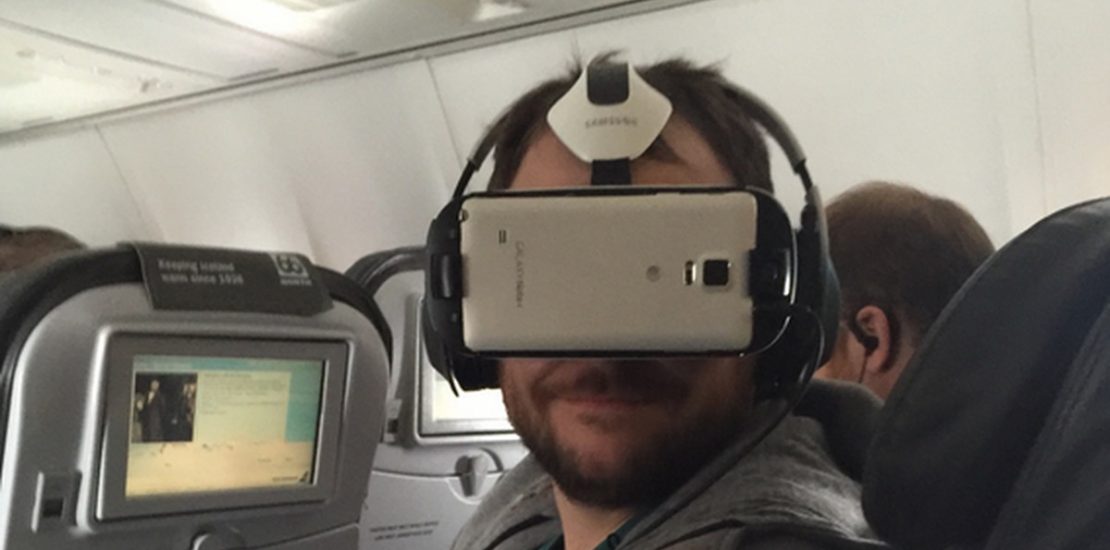- September 23, 2018
- Posted by: Sharlene Stevens
- Category: International

VR helmets in the aircraft industry may be posing a threat to onboard safety. A study conducted by the Dutch company KLM just revealed it.
More and more airlines are offering virtual reality headsets to their passengers. RV allows travelers to forget the limited space of the aircraft by immersing themselves in a virtual world. It may be particularly relevant in the case of long-haul flights, where you quickly get bored.
However, before investing in a fleet of VR helmets for its aircraft, the Dutch company KLM preferred to carry out tests in collaboration with the Dutch Aeronautics Centre (NLR). Its objective was to measure the impact of virtual reality on passenger behavior and to identify possible risks to flight safety.
To do this, KLM gathered 40 volunteer employees and placed them in a simulator that simulates the interior of an aircraft cabin at Amsterdam’s Schiphol Airport. For two days, KLM repeated tests lasting 10 to 20 minutes several times.
During these tests, passengers wore RV helmets. While immersed in the virtual world, three different flight scenarios were taking place. In the first scenario, the flight was uneventful. In the second, slight turbulence occurred. Finally, the third scenario was spiced up by the rapid depressurization of the cabin, which happens in the event of an air crash.
VR helmets in the aircraft: passengers do not even notice turbulences
During the first scenario, the calmest, there was nothing to report except that staff were forced to make more effort to communicate with passengers wearing RV helmets (which is logical). Besides, KLM noted a risk of collision between passengers during improperly measured movements.
In contrast, in the second and third scenarios, KLM and NLR were surprised by passenger behavior. So intensely immersed in the virtual reality, the latter did not notice the turbulence, jolts, noises and falling oxygen masks.
The end of September 2018 will publish the final results of this test, but KLM and NLR already believe that VR helmets in the aircraft can affect communication between crew and passengers and threaten the level of safety on board.
As a reminder, a few days ago, Sony’s CEO also pointed to the occlusive nature of VR helmets as one of their defects. The Japanese giant is considering creating a PSVR 2 to superimpose the virtual on the real to avoid this problem. Thus, to offer the VR in its aircraft, KLM will probably wait for the next generation of helmets.
